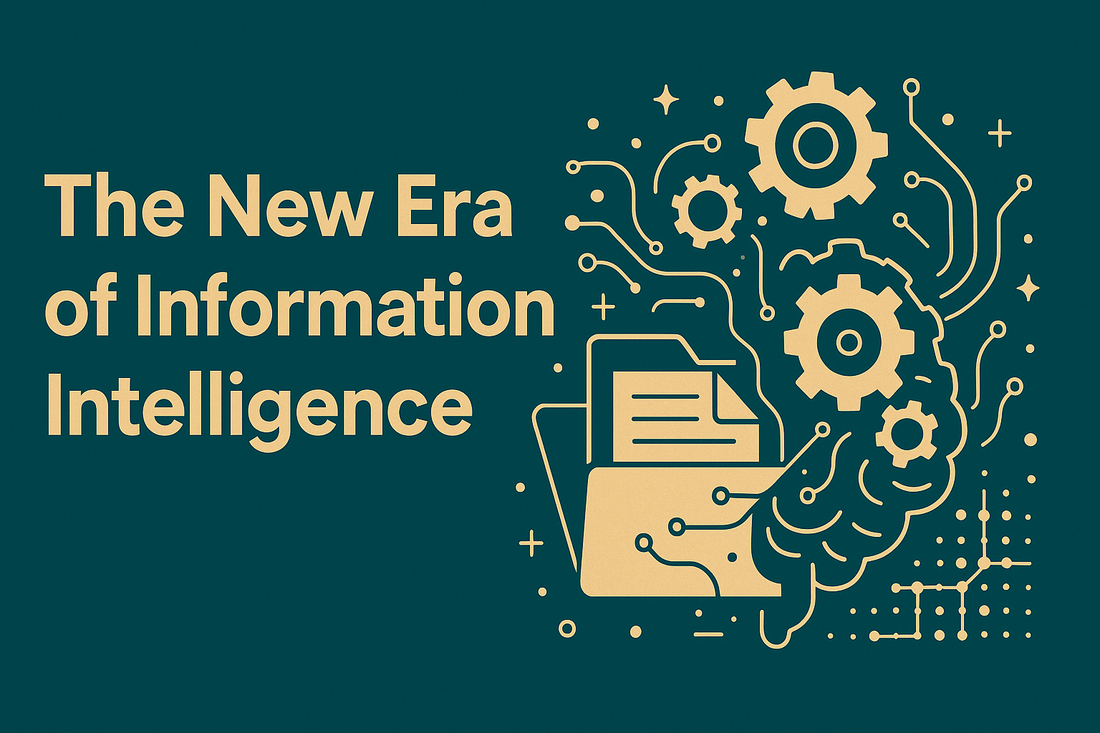
From Documents to Decisions: Why Information Intelligence Is the Strategy
Rob RitchieInformation Management was once a respectable, if niche, function—usually synonymous with document control. In many organisations, it still is. It extended, over time, to include document management and correspondence systems. But its reach remained mostly confined to semi-structured content: registers, drawings, transmittals, and formal records.
But today, that definition is too small.
In the real world, information doesn’t live in tidy folders. It lives everywhere—inside structured databases, unstructured documents, transient messages, video calls, spreadsheets, emails, and people’s heads. And it moves faster, grows bigger, and fragments further than ever before.
What we’re seeing isn’t just a change in the volume of information—it’s a shift in its strategic role, or its ability to help realise its strategic potential.
Information Is No Longer a Byproduct. It’s the Product.
More and more, we make decisions based on patterns, signals, data, and insight. That means organisations need information they can trust, access at speed, and use to drive consistent action.
The unit of value isn’t a document anymore. It’s a decision.
That’s what Information Intelligence is about. It’s the evolution of Information Management from a passive service into an active, strategic capability. It’s no longer about controlling files. It’s about creating a foundation of information that:
- Supports every core decision in the business
- Enables AI, automation, and real-time reporting
- Reduces waste, confusion, and rework
- Unlocks strategic advantage
This isn’t an IT problem. It’s not just governance. And it’s certainly not just another software platform.
This is about redefining how your organisation treats, uses, and values information—from the bottom up and the top down.
A Whole-of-Business Capability
True information intelligence requires cooperation across:
- Business leadership, who must sponsor and prioritise the information agenda
- Technology teams, who must enable—not dictate—the flow of information
- Process owners, who must define how information is used and maintained within each business function
- The workforce, who must be equipped to find, manage, and share information in meaningful ways
Why It Matters
We believe information is your most underutilised lever for transformation. And we’ve seen the cost of ignoring it—slow decisions, duplicated effort, failing systems, and projects that never achieve their intended impact.
Information Intelligence is not a buzzword. It’s a blueprint for making your business more productive, more scalable, and more strategic.
